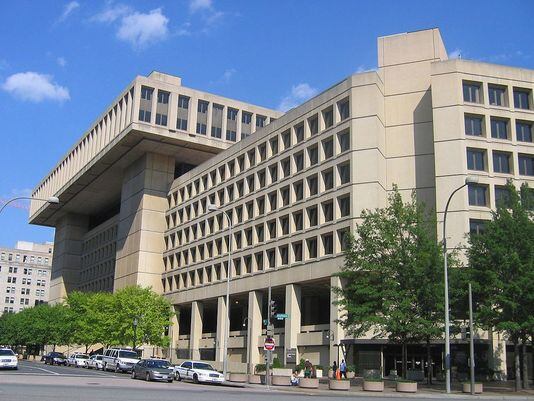The speculation surrounding the FBI's new headquarters once centered on whether it would end up in Maryland or Virginia, at least until last week.
The Washington Post reported on April 20 that Sen. Patrick Leahy, D-Vt., penned a letter to General Services Administrator Denise Turner Roth to ask that the new headquarters not bear the name of the bureau's first director, J. Edgar Hoover.
Hoover's name is met with distaste in many quarters these days because of his use of illegal wiretaps and surveillance of many Americans—including Martin Luther King Jr.—in a 15-year operation called COINTELPRO, or Counter Intelligence Program.
"On the one hand, Hoover did build this great organization. He created the FBI laboratory, the fingerprint system, all very advanced technologically. He also made it clear that FBI agents may not engage in brutality, which was very common in police agencies," said Ronald Kessler, a journalist and nonfiction author who has written three books on the FBI, including "The Bureau: The Secret History of the FBI."
"But at the same time, he violated Americans' rights in so many different ways. To have his name on the FBI building, in my opinion, is a disgrace. Because so much of what he did flies in the face of what the FBI stands for today."
The FBI is currently exploring a real estate swap of its 2.8 million-square-foot building on Pennsylvania Avenue for one either in Greenbelt and Landover, Md. or Springfield, Va.
Once a site is picked, it will likely take an act of Congress to dedicate it, with legislation starting in either the U.S. Senate Committee on Environment and Public Works or the House Transportation and Infrastructure Committee. As GSA administrator, Roth would have the authority to name or rename any federal building the agency manages, but a new FBI headquarters would likely require congressional action.
"It's sort of an interesting process," said Bob Peck, former commissioner of the GSA's Public Buildings Service. "The [U.S. Senate] Committee on Environment and Public Works had internal rules that said buildings should only be named for people who have been deceased for a certain period of time because, to be honest, they wanted to avoid an inclination among some members of Congress to have buildings for themselves while they're in office.
"While I have no idea whether Administrator Roth or this administration would want to name such a building for J. Edgar Hoover, I think that Sen. Leahy—who's a pretty good and savvy guy—probably know he also needs to make the same suggestion inside the Congress."
One recent FBI building dedication occurred in 2015, when Congress passed legislation to name the Miramar, Florida bureau office the Benjamin P. Grogan and Jerry L. Dove Federal Building for two agents who were killed in an infamous 1986 shootout.
Legislation for that dedication was introduced in the House in February 2015 before swiftly clearing both chambers and being signed by the president on April 7, 2015. The building was officially dedicated by President Obama and FBI director James Comey three days later.
So it raises the question: if the new FBI building is not named for Hoover, who should it be named for?
"Nobody," Kessler said. "I reject the whole idea of naming anything after politicians or leaders, that's just my personal opinion about it. We've had many outstanding FBI directors: [William] Webster, [Robert] Mueller and Comey. It would be a hard put to choose among them, if you want to name a building after a director."
Meanwhile, the FBI's website devoted to its current home is simply labeled "Headquarters."
In Other News




